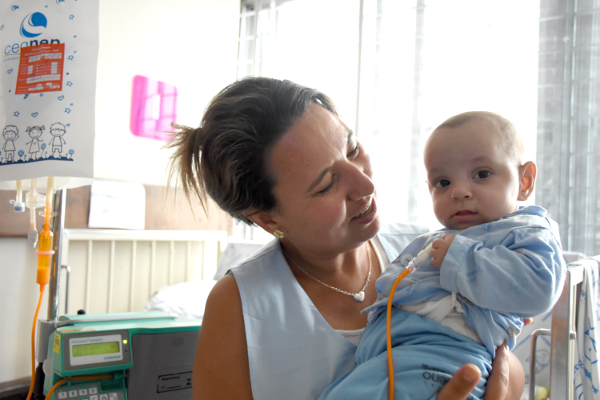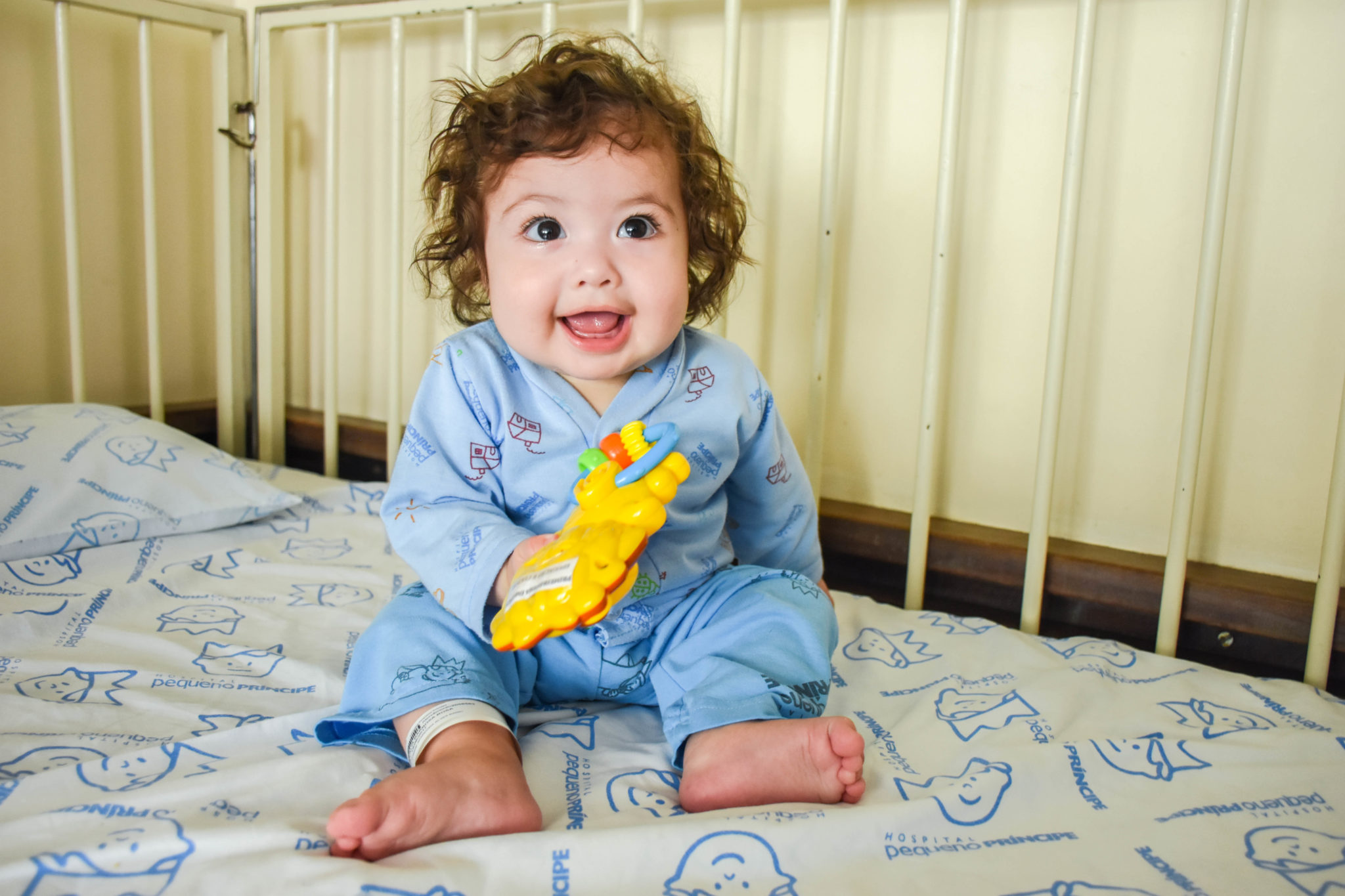Intestinal rehabilitation provides life quality to patients with short bowel syndrome
Children who lost a part of the small intestine turn to oral feeding, thanks to a treatment offered by the Pequeno Príncipe Hospital

One of the highlighted projects that the Nutritional Support team of Pequeno Príncipe Hospital is developing, is an intestinal rehabilitation addressed to children who lost a significant part of the small intestine. This loss inhibits the child to absorbs essential nutrients, which are needed in order to enable a regular growth and development.
The gastroenterologist who coordinates the Nutritional Support team at the Pequeno Príncipe Hospital, Jocemara Gurmini, explains that bowel rehabilitation seeks to stimulate a part of the preserved intestine and to ensure child’s growth. “The intestine does not regenerate, but it gets adapted. And as the child grows, the intestine grows proportionately. Through rehabilitation, we seek to stimulate the preserved part, calculating an adequate amount of parenteral nutrition that each child needs”, she details.
A healthy baby has approximately 240 centimeters of small intestine. It is at this part of the human body that macronutrients and micronutrients are absorbed. Intestinal failure may occur due to congenital diseases, intestinal pseudo-obstruction syndrome, necrotizing enterocolitis or short bowel syndrome (SBS). The majority of children who needs intestinal rehabilitation suffers from SBS. The patient who uses parenteral nutrition (intravenous) for more than 60 days after a small bowel withdrawal surgery, or has less than 25% of the intestinal segment, is considered to have short bowel syndrome.
Another great purpose of the intestinal rehabilitation work is to ensure the patient’s safety in the care of the catheter – through which the intravenous feeding is inserted –, since the correct handling and hygiene can avoid infections.
As patients are fed this way for a long period of time (months or even years), it is also essential to preserve the venous access.
At last, another major challenge to this work is to properly calculate intravenous feeding, avoiding secondary harm to patients, especially for those who have a prolonged use of this type of diet.
Little warriors

Most of the patients seen in the Pequeno Príncipe Hospital have a problem at birth and lose part of the small intestine early in life. Usually, the babies are hospitalized in the Neonatal ICU, where they can already begin the treatment with the Nutritional Support.
The Public Health System of Brazil – called SUS – has not yet established rules for the care of those patients at home (homecare), even after stabilization, which makes the hospital stay even longer.
“The average time of the intestinal rehabilitation varies from 24 to 60 months. To ensure the quality of life to the patient and their family is very important to have supervision of a specialized team, monthly follow up appointments and the hospital support when needed”, says Jocemara.
More
Pequeno Príncipe: 99 years of pioneering and innovation
Throughout its history, the institution has sought to offer the best to its patients in the field of healthcare. And that is only possible through cientific discoveries and the use of new technologies
Ryan is overcoming short bowel syndrome
The boy lost part of his intestine due to complications after he was born. He was finally able to go home after eight months of treatment
An educational hospital
Pequeno Príncipe creates learning opportunities for everyone who comes through its doors, in every place, in all of its forms
Other Editions
©2026 . Pequeno Príncipe Complex . All Rights Reserved

.png)
.png)
.png)




